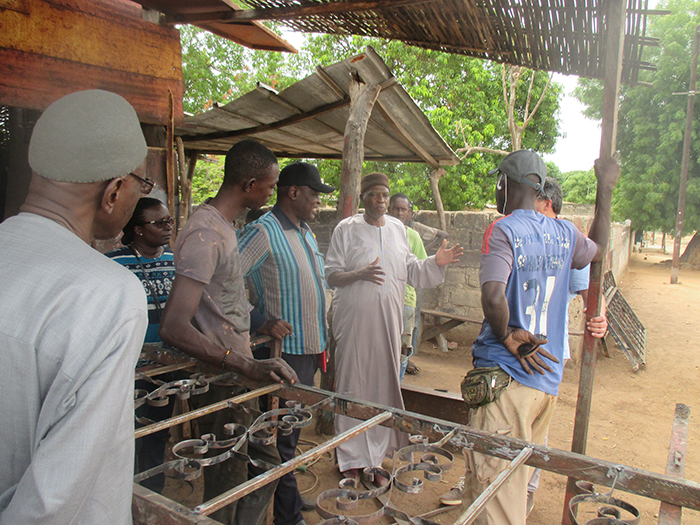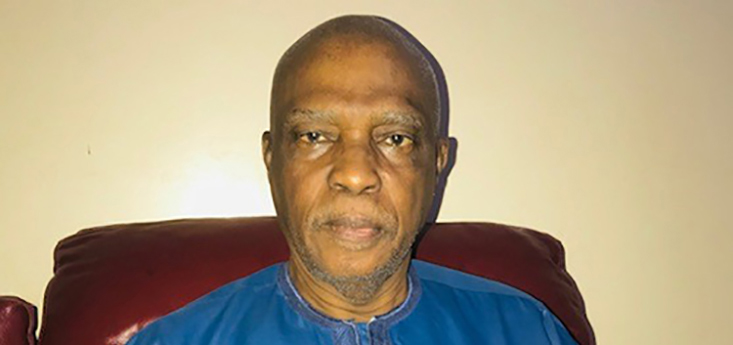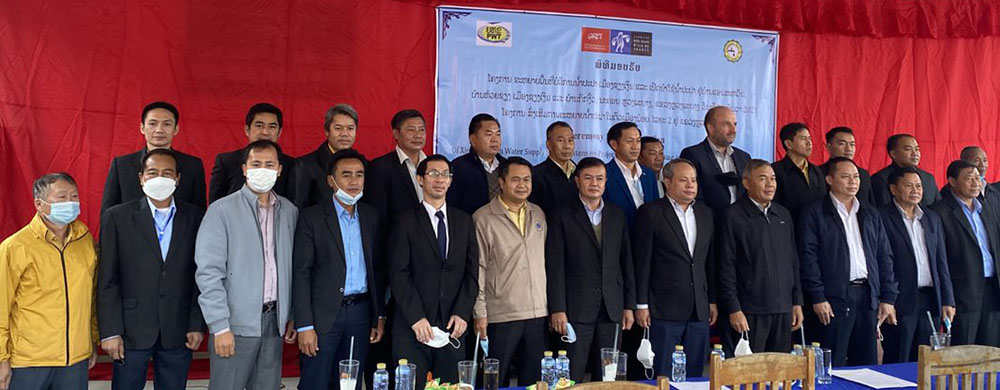Implemented by a consortium made up of GRET, Enda Graf Sahel and Fodde, the Qualemploi project has been supporting vulnerable young people and their apprenticeship tutors in a tutorial apprenticeship vocational training process applied to agriculture-related trades. Cheikhou Touré, institutional relations coordinator of the Qualemploi project on behalf of Enda Graf Sahel, who is also chairperson of Reford (Network of studies, research and training for development), and of the Governance commission of the national education forum, explains the challenges of this approach, which aims to sustainably improve quality of training and access to employment in Senegal.
In what way is the Qualemploi project’s approach innovative in the vocational training sector in Senegal?
Traditionally in Senegal, vocational training was conducted from father to son and from mother to daughter. There was no unemployment because there was a coherent link between vocational training in the various trades, output profiles, economic requirements and society. However, the constraint resided in absence of mobility from one socio-economic group to another, particularly because of the caste system. In the Arab-Islamic period, focus was mainly placed on training teachers of the Coran and of Arabic; the subject of trades was not on the agenda. However, in the programmes developed by French colons, vocational training had its place. Here again, there was consistency between profiles targeted and the trading economy. Abdou Moumouni, from Niger, sets out broad details concerning these different periods in his thesis entitled “L’éducation en Afrique” (Education in Africa). In the post-colonial period, when countries started gaining their independence in the 1960s, UNESCO and the Organisation of African Unity (OAU) organised two conferences which set two objectives for newly independent countries, to be achieved by 1980: universal school enrolment and the implementation of programmes in line with the socio-economic and cultural development of independent African States.
Today, it is recognised that despite numerous efforts, none of these objectives has been achieved. The transition from the workshop to the company as the sole producer of knowledge and employment is a difficult one. The issue of national languages and increase in populations’ scientific and cultural knowledge has yet to be addressed. Yet, we know that the scientific and cultural development of a people can only blossom easily in its own language. Progress in the teaching of scientific subjects and training in trades that are aligned with the challenges of socio-economic and cultural development are trailing behind general teaching, which does not provide sufficient professional opportunities until university level. What is even more worrying is the fact that every year, 200,000 to 300,000 young men and women enter the employment market. According to a study by the World Bank, the formal system only produces 8 % of jobs in Senegal, with the non-formal system producing 92 %.
This is why Mamadou Talla, former Minister of Vocational Training and currently Minister of Education, recently described the artisan sector in Senegal as a boulevard that, according to him, is proving to be a springboard for growth businesses. Indeed, it is the main pathway serving as a basis for the transition from the workshop to the micro-business, industrialisation and the creation of a tertiary sector capable of propelling the country towards growth and sustainable socio-economic and cultural development. It is also the best means to give young people levers to meet businesses’ demand for qualified staff. In 2015, when the goals aimed to build a better world, Senegal set itself the challenge of emerging as a prosperous and fair country in the rule of law. This is the challenge in which vocational training is situated, and the objective of the Qualemploi project in particular.
What are the visible effects of the three-person training system (apprenticeship tutor, trainer and literacy teacher) implemented for the young Qualemploi apprentices?
As part of the Qualemploi project, training of 600 young people not in school or who dropped out of school posed several challenges from the outset, in particular the challenge of improving effective learning, taking a skills-based approach. Until now, training took place at two different sites (the workshop and the training centre) alternately, with almost no dialogue between the trainer from the centre and the apprenticeship tutor. The challenge consisted of eliminating this distance and the mistrust that had developed. Lastly, the profiles of the young people not in school or who dropped out of school necessitated literacy training to enable better understanding of what they were learning and note-taking to memorise what they learned. But, more importantly, learning the language is also a means for these young people to acquire better conceptual, methodological and instrumental knowledge, which is the basis for their creativity to express itself, so that they can innovate and better meet demand in the sector.
These challenges led us to designing the A3 format, also called literacy integrated in vocational training. It enables us to train the apprentice in the workshop hosting the trainer, the apprenticeship tutor and the literacy trainer, who all work together in the same place (the workshop), at the same time (the session) and on the same action (training using the A3 format).

What are the major challenges for vocational training in Senegal over the coming years?
The Emerging Senegal Plan now articulates the country’s sustainable socio-economic and cultural development around three pillars:
- increased economic growth and equitable distribution of wealth;
- quality human capital and its social protection;
- decentralised transparent governance that is effective and efficient.
This is the framework in which vocational training is organised today in Senegal, and it is why we are implementing a broad, coherent, sustainable programme, underpinned by the principle whereby all Senegalese people become skilled, fair, supportive entrepreneurs, with sustainable decent incomes, and participate in the economic and social development of their country.
The Qualemploi project strives to achieve this by delivering more comprehensive and inclusive training to young people in growth trades in sectors such as irrigation, photovoltaic, and maintenance and driving of agricultural machinery, while at the same time focusing on their civic strength.




